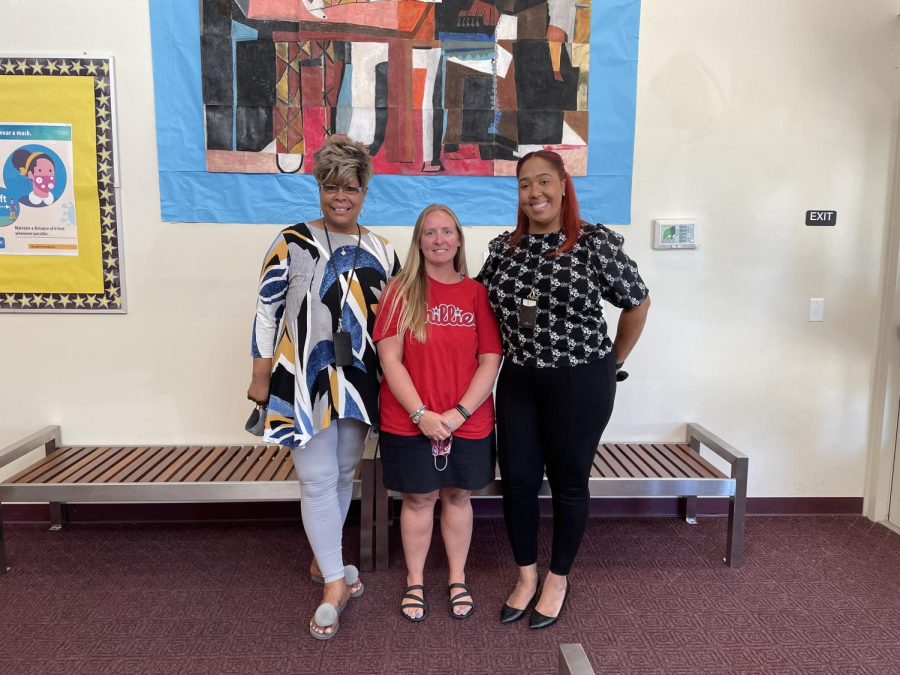The complicated battle for a more inclusive education
(From left to right) Ms.Kelly Chappell, Ms. Kristen Meitzler, and Mrs. Christina Carter at A.M. Kulp
Understanding a different perspective on education and learning through the eyes of cultural proficiency necessitates a shift in mindset as well as a change in heart. Principal Mrs. Christina Carter’s experience at Kulp has been rewarding, but not easy.
“My passion is understanding the makeup of where I go….What is your background? What are your views? What are things you value? It impacts how you interact with people [and] how you value what they bring,” said Carter.
Morning announcements are used to highlight various languages. Kulp featured Spanish on Fridays during Hispanic Heritage Month. Students would learn words to use in conversation with their peers, such as “how are you?” This enabled students to interact with peers who did not speak the same language.
Carter wants to make students feel welcomed. She wants them to know that it is okay to speak a language other than English at Kulp, rather than making them feel like they can’t. Each month, a different language is showcased.
Instead of participating in Read Across America Day, which typically lasts a week, Parents involved in Parents in Equity are helping to advocate for inclusive books in the classrooms that reflect the students in the school throughout the school year.
“Students can learn more about different cultures, different backgrounds, different ways of thinking. It hits on race, gender, and some for religion … We have now identified different books that reflect as a window or a mirror for students,” explained Carter.
Carter’s progressive perspective on diversity, equity, and inclusion represents a significant shift for Kulp. She strongly believes that teachers need to bring their authentic selves into the building. This allows students to be authentic as well.
“I want you to be able to share who you are 100%, and feel comfortable in that space, and even if that is not what the masses feel is okay, you still should be able to feel okay sharing,” added Carter.
Carter brings a broader perspective to Kulp by placing a greater emphasis on diversity equity inclusion. In recent years, engaging activities for students to participate in such as decorating doors with prominent African Americans during black history month, celebrating Hispanic Heritage Month, and monthly newsletters with important holidays, have helped students immerse themselves in a new culture.
However, change for a more inclusive education does not come easy. Especially when some parents feel uncomfortable with their children learning about race and equity.
“Sometimes when we do teach about race and equity, sometimes parents don’t like that. They don’t want to talk about those things. That makes it hard for us, as teachers. The district wants us to. The parents don’t want us to so we are in the middle. It is not easy even though it is approved that we can do it,” explained 5th grade teacher Ms. Kelly Chappell.
Chappell believes it is important to acknowledge equity. Some students have more advantages than others.
“As an African American teacher, I only see maybe two or three African American students. I want them to see me as someone who can advocate for them,” added Chappell.
The district is attempting to move in the right direction, but some parents are unwilling to be open-minded about discussions about race and equity.


